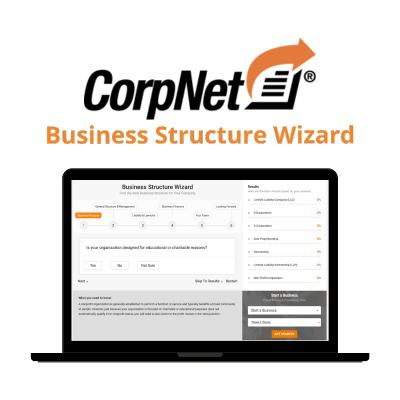Boasting a market of 8.5 million potential customers, New York State’s economic opportunities are limitless. With tax-based incentives, various resources, and training for business owners, New York is a great place to start a business and begin your journey of entrepreneurship.
If you’ve been thinking about launching a company in New York, you’ve come to the right place. This article will walk you through the many things business owners should know and address to get their new businesses up and running.
1. Fine-tune Your Business Idea
Before spending time and money starting a business in New York, entrepreneurs should do their due diligence to ensure their business concept has the potential to succeed. A feasibility study can help reach an informed “go” or “no go” decision. Also, consider bouncing your idea by trusted advisors like SCORE mentors, business consultants, accountants, and attorneys who can help you identify red flags.
2. Write a Business Plan
With so many moving parts involved in starting a business in New York, writing a business plan helps you focus on your business objectives and the strategies for achieving them. A business plan is a document that outlines and defines your goals and describes the efforts you will make to accomplish them. Some business plans should be in-depth and detailed, while others can be short and sweet. The complexity depends on the type of business you’re starting. If you plan to appeal to outside financial sources and get funded, you need a formal business plan.
Typically, a business plan contains the following sections:
- Executive Summary
- Company Overview
- Products and Services Descriptions
- Market Analysis
- Competitive Analysis
- Sales and Marketing Plan
- Management and Operations Description
- Financial Projections
You can find business plan templates online that you can use as a starting point for creating your own.
3. Name Your Business
Besides choosing a business name that works well for marketing and branding purposes, ensuring the desired name is available in New York is vital. To find out if any other New York companies are using a business name, you can use CorpNet’s free business name search tool. When registering an LLC or corporation in New York, the business name becomes protected against another similar business from using the name. Registering for a state trademark can offer additional peace of mind. When forming a legal business entity, a company must comply with the entity-specific name requirements (e.g., a Limited Liability Company must use an acceptable form of “LLC” behind it).
Sole Proprietorships and General Partnerships do not have to register their companies. Still, if they use a name that doesn’t include the legal names of the business owners, they must file a Registration for Application of Trade Name. In addition, when forming a legal business entity, a company must comply with the entity-specific name requirements (e.g., a Limited Liability Company must use an acceptable form of “LLC” behind it).
Registering a business in a state only protects the company’s name within the state. So entrepreneurs who want to expand their businesses to other states or ensure their companies’ names are protected in all 50 states should conduct a trademark search, which helps identify if the desired name is available throughout the US. Plus, if your trademark application is granted, it ensures similar businesses cannot use the name in other states.
4. Choose a Business Entity Type
Several business structure types are available in New York, including Corporations, Nonprofit corporations, Limited Liability Companies (LLC), General partnerships, Limited partnerships, and Sole Proprietorships.
Which entity type will work best for your business? You’ll need to consider various factors, including the desire for personal liability protection, tax ramifications, ownership and management flexibility, and business compliance requirements.
Let’s look at a few of the business entities and walk through the highlights of each.
Sole Proprietorships
- The business and its owner are considered the same entity in a Sole Proprietorship, which means the assets and liabilities of the company are those of the owner. While this creates simplicity operationally and from a tax perspective, it can also be a disadvantage. For example, if someone sues the company or the business can’t pay its bills, the owner risks losing their personal money and property.
- Another potential disadvantage of a Sole Proprietorship is that the business can only be transferred to the owner’s heirs to be continued, restructured, or dissolved if the owner dies.
- Sole Proprietorships also have limited funding options, so investors often hesitate to finance businesses not formally registered as statutory entities.
- Sole Proprietors report their business income and losses on their individual federal tax returns. The business owner doesn’t receive a company paycheck that withholds federal income tax and payroll taxes. So they must submit quarterly estimated federal income tax payments, including self-employment taxes. The self-employment tax rate is 15.3%, consisting of 12.4% for social security (old-age, survivors, and disability insurance) and 2.9% for Medicare (hospital insurance). In some situations, that self-employment tax burden can become lofty and prompt a sole proprietor to look at business structures that can minimize those costs.
Partnerships
- A Partnership is a non-registered business co-owned by two or more partners.
- Like Sole Proprietors, General Partners and their businesses are the same entity for legal and tax purposes.
- A Partnership is a simple and inexpensive way to form a multi-owner business. There are no state, federal, or local filings to register a partnership formally, and partners can easily make decisions without the meeting formalities required of corporations.
- In addition to the personal liability risk to business owners, other potential disadvantages of owning a general partnership include the limited funding possibilities, a heavy self-employment tax burden, and the cessation of the business if a partner leaves (unless the partnership agreement has provisions to remedy that).
Limited Liability Companies (LLCs)
- A Limited Liability Company (LLC) provides legal and financial separation between the owners (members) and the business. An LLC structure offers peace of mind to business owners who don’t want to risk having their personal assets, including bank accounts and retirement savings, used to settle their company’s debts or legal problems.
- From a tax perspective, however, the LLC and its members are viewed as a single tax-paying entity. So the LLC’s profits and losses are reported through its owners’ federal personal tax returns.
- Single-member LLCs (called disregarded entities) get taxed as Sole Proprietorships, and multi-member LLCs get taxed as Partnerships.
- Federal income tax flexibility is one of the most attractive features of the LLC structure because an LLC (if it meets all IRS eligibility requirements) can elect to be taxed as an S Corporation or a C Corporation.
- The New York Department of State requires LLCs to file a Biennial Statement every two years. A biennial report keeps the state up-to-date on a company’s vital information.
- New York does not allow registration of Series LLCs, which are variations of the LLC structure, providing each series with its own membership interests, assets, and operations. In a Series LLC, each series has its own name and operates independently with a separate bank account and financial records.
Limited Partnerships (LP)
- A Limited Partnership has general partners and limited partners. The general partners are the owners that manage the company. They face the same personal liability risks as in a General Partnership because there’s no separation between the individuals and the businesses.
- Limited partners do not manage the company. Instead, their role is to fund the business. Therefore, their personal liability is limited to the amount of their investment in the company.
- Some potential disadvantages to an L.P. are that it can get complicated to run from an accounting standpoint, and limited partners have no say in how the company is run after they’ve made their investments. Plus, an L.P. can become costly to form and operate.
C Corporations
- New York businesses that operate as C Corporations offer the highest degree of personal liability protection for their owners (shareholders).
- The C Corporation is a separate entity legally and for tax purposes. Accordingly, it reports and pays federal income tax on its profits on its own tax return.
- C Corporations must appoint a board of directors to oversee the company’s affairs and ensure the business is managed with the interests of its shareholders and stakeholders in mind.
- C Corporations have more financing options, too. For example, they can sell stock to raise capital, and investors typically show more interest and confidence in funding businesses registered as Profit Corporations.
- The double taxation on C Corporations sometimes dissuades entrepreneurs from choosing this entity type. That term refers to how company profits that get distributed to shareholders as dividends are taxed twice: 1) once to the corporation at the corporate tax rate; and 2) again to the individual shareholder at the applicable individual tax rate.
- Corporations that meet the Internal Revenue Service’s (IRS) eligibility requirements can opt for S Corporation tax treatment to avoid double taxation.
- Other potential disadvantages of the C Corporation structure include its higher formation costs and more extensive ongoing compliance responsibilities (such as submitting annual reports, holding shareholder and board of directors’ meetings, and other requirements).
S Corporations
- As noted in the LLC and C Corporation overviews, an S Corporation is a tax election option, not an entity type.
- LLCs or C Corporations that qualify can file for an S Corporation election by submitting IRS Form 2553.
- If a C Corporation ops for an S Corporation election, the corporation gets pass-through tax treatment and eliminates double taxation.
- If an LLC opts for an S Corporation election, it retains its underlying legal structure, so compliance requirements remain minimal. It also maintains pass-through tax treatment, but unlike the default LLC taxation, not all business profits are subject to self-employment taxes.
- Only an S Corporation’s owners’ wages and salaries are subject to Social Security and Medicare taxes; owner income from company profit distributions is not subject to those taxes.
5. Appoint a Registered Agent in New York
Businesses registered in New York must designate a Registered Agent in the state. The Registered Agent must have a physical address in New York and be available to accept service of process (official government documents, legal papers, etc.) for the business Monday through Friday from 9 a.m. to 5 p.m.
The ramifications are serious if an LLC, C Corporation, or other registered business entity fails to maintain a Registered Agent.
CorpNet offers Registered Agent services in New York and throughout the U.S., which saves businesses that want to expand into other states the trouble and expenses of looking for a Registered Agent in each state.
6. Register Your New Business
Here’s a run-down of some of the initial paperwork required when starting a business in New York:
- Sole Proprietorships: Business owners don’t have to file organization documents to operate as Sole Proprietorships in New York. Note that a trade name (sometimes called Doing Business As, a DBA, or a Fictitious Name) filing is required if the business’s name is other than the owner’s first and last name. Also, like formally registered businesses, sole proprietorships must obtain the necessary licenses and permits to operate legally in the state and local jurisdictions.
- General Partnerships: The state does not require Partnerships to register their businesses formally. If using a business name that does not reflect the legal names of the business partners, the Partnership must file a DBA. Also, although not required by state law, partners should consider having a written partnership agreement to document all the business partners’ responsibilities and rights. Partnerships must obtain all the necessary licenses and permits to operate legally in the state, county, and local municipalities.
- Limited Partnerships: A limited partnership may be formed by the general partner(s) by creating a partnership agreement, filing a Certificate of Limited Partnership with the New York Department of State, and paying a $200 filing fee.
- Limited Liability Companies: To form an LLC in New York, Articles of Organization must be filed in New York, and the LLC must pay a filing fee of $200. Go to the Department of State Online Filing System to file formation documents online. LLC members should consider creating an operating agreement. The state doesn’t mandate this, but it serves a critical role in defining how the LLC should be run and describing the responsibilities of the LLC’s members (and managers).
- C Corporations: For a business to incorporate in New York, the state requires them to file a and pay a filing fee of $125. Profit Corporations in New York must also appoint a Board of Directors, adopt bylaws, and have regular board meetings. In addition, every New York business corporation must designate in its certificate of incorporation the number of shares it will have the authority to issue.
7. Obtain an Employer Identification Number
Any business that hires employees must get a Federal Tax ID Number or Employer Identification Number (EIN), which is a 9-digit number obtained from the IRS. Often, a bank will require a company to have an EIN before opening a business bank account. Other official paperwork may ask for a business’s EIN, as well.
The IRS issues EINs for free, and CorpNet can help companies by completing and submitting the application (Form SS-4) for them. Note that the IRS recently announced that it is revising the EIN application process to enhance security.
8. Open a Business Bank Account
Opening a business bank account is a critical step in your journey of becoming an entrepreneur. Keeping a business entity’s financial documents and records separate from those of the business owners is imperative for accurate bookkeeping and legal reasons. Setting up bank accounts, credit card accounts, etc., exclusively for company use helps ensure separation. If an LLC, LP, C Corporation, or other registered company commingles personal and business expenses and income, the owners jeopardize their personal liability protection and may incur additional penalties.
9. Be Aware of Business Taxes and Fees
If your business is incorporated in New York State, does business there, or participates in certain other activities, you may have to file an annual New York State corporation tax return to pay a franchise tax under the New York State Tax Law.
The following taxes and fees may need to be remitted in New York:
- Biennial Report Fee: The fee is based on the gross income earned in New York.
- State Sales Tax: New York’s sales tax rate is currently 4%. Each county charges an additional sales tax between 3% and 4.5%. Counties in the metropolitan commuter transportation district (MCTD) must also collect a sales tax of 0.375%.
New York manages state payroll taxes through the Department of Taxation and Finance. Employer taxes include:
- Progressive Income Taxes: New York has a progressive income tax depending on an employee’s income level—from 4% to 8.82%.
- New York City Taxes: If employees live in New York City, there is an additional surcharge—from 2.907% to 3.876%.
- Supplemental Wages: Extra compensation, such as bonuses and commissions, are taxed at 9.62%.
- Yonker’s Supplemental Taxes: Employees who are residents of Yonkers have an additional surcharge of 1.61135% for supplemental wages.
- New York City Supplemental Taxes: Employees living in New York City have an additional surcharge of 4.25% for supplemental wages.
- Unemployment Insurance (UI): Most employers in New York must also pay taxes to provide unemployment insurance through the New York State Department of Labor (NYSDOL). The rate cannot exceed 3.4% and is fixed yearly according to the Unemployment Insurance Trust Fund size.
- Employer Compensation Expense Tax (ECET): New York employers can also pay an Employer Compensation Expense Tax (ECET) to offset employees’ federal taxes.
- Re-employment Services Fund (RSF): All New York employers must pay a tax into the re-employment services fund. This fund provides support and training for the unemployed to help get them back to work. The RSF is a flat tax of 0.075% on the total quarterly payroll.
- State Disability Insurance (SDI) and Paid Family Medical Leave (PFML): New York also requires employees/employers to contribute to State Disability Insurance and Paid Family Medical Leave. Employers can share in the contribution or have employees bear the full responsibility.
The NY Department of Taxation and Finance can advise business owners on the taxes they must pay and how to pay them. An accountant or tax advisor is also helpful for identifying tax obligations.
10. Research Other Business Essentials
Other considerations to review when starting a business in New York include:
- Business Licenses and Permits: Businesses may need specific licenses, permits, or other federal, state, or local government authorizations, depending on their industry. The New York Business Express website has created a comprehensive business permitting and licensing guide. It’s a valuable resource explaining the requirements that might apply to your business. You can also turn to CorpNet to help you identify the business licenses and permits required in the area where you plan to operate your business.
- Zoning: Businesses physically located in New York State must comply with the local municipality’s zoning regulations.
- Insurance: To protect your business in the event of unforeseen and unfortunate circumstances, research the types of business insurance you want or are required for your industry.
- Starting Funds: Will you need to apply for loans, seek investors, or get additional money to launch your business?
- Payroll Taxes and Regulations: If your business plans to hire employees, there are many human resource-related responsibilities and regulations you must follow. Learn more about registering for payroll taxes in New York to help get you started with your new staff.
Stay in Compliance
Businesses must stay current on their biennial report and tax filing requirements to stay in good standing and operate legally in New York. If you are unsure of your obligations to maintain corporate compliance, ask your attorney and tax professional for guidance.
One convenient way to keep track of future filings is by using CorpNet’s Compliance Portal. The free online portal makes tracking license renewal and annual report deadlines easy.
Additional Resources to Keep Handy
You don’t have to go it alone when starting and running a business. Keep a list of resources that provide information and insight.
Here are a few helpful ones:
- New York Department of State
- New York Small Business Development Center, including help for minority and women business owners
- New York Department of Taxation and Finance
- IRS Website
- New York Department of Labor
- Patent and Trademark Office
- SCORE of New York City
- Metro New York U.S. Small Business Administration
- NY Manufacturing Assistance
Lastly, CorpNet is here to help you with your business registration and compliance filings after you consult with your legal and accounting experts to determine what you need to do. We’ll save you time and legal costs while ensuring your filings are done accurately and on time.

Choosing a business structure can be a tough decision for the new business owner. CorpNet wants to make the process easier.
This free, online tool helps small business owners navigate the process of picking the right business structure for their new business.





